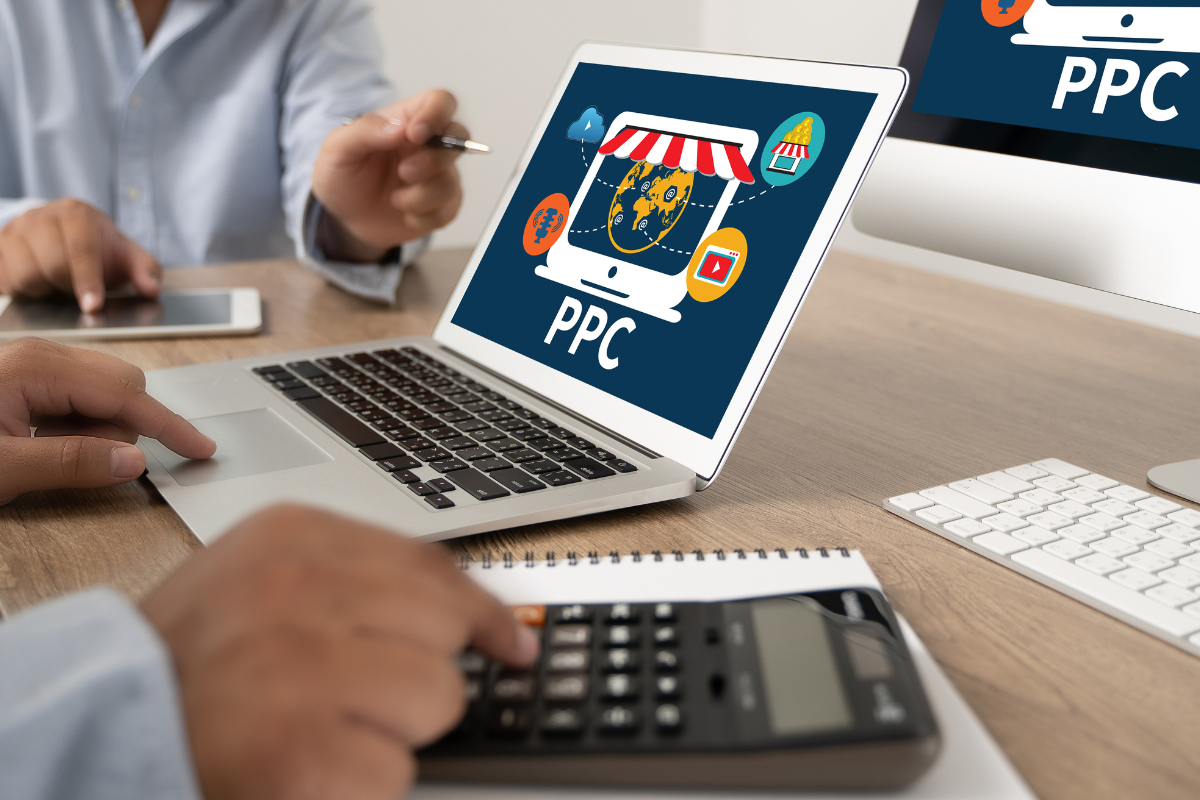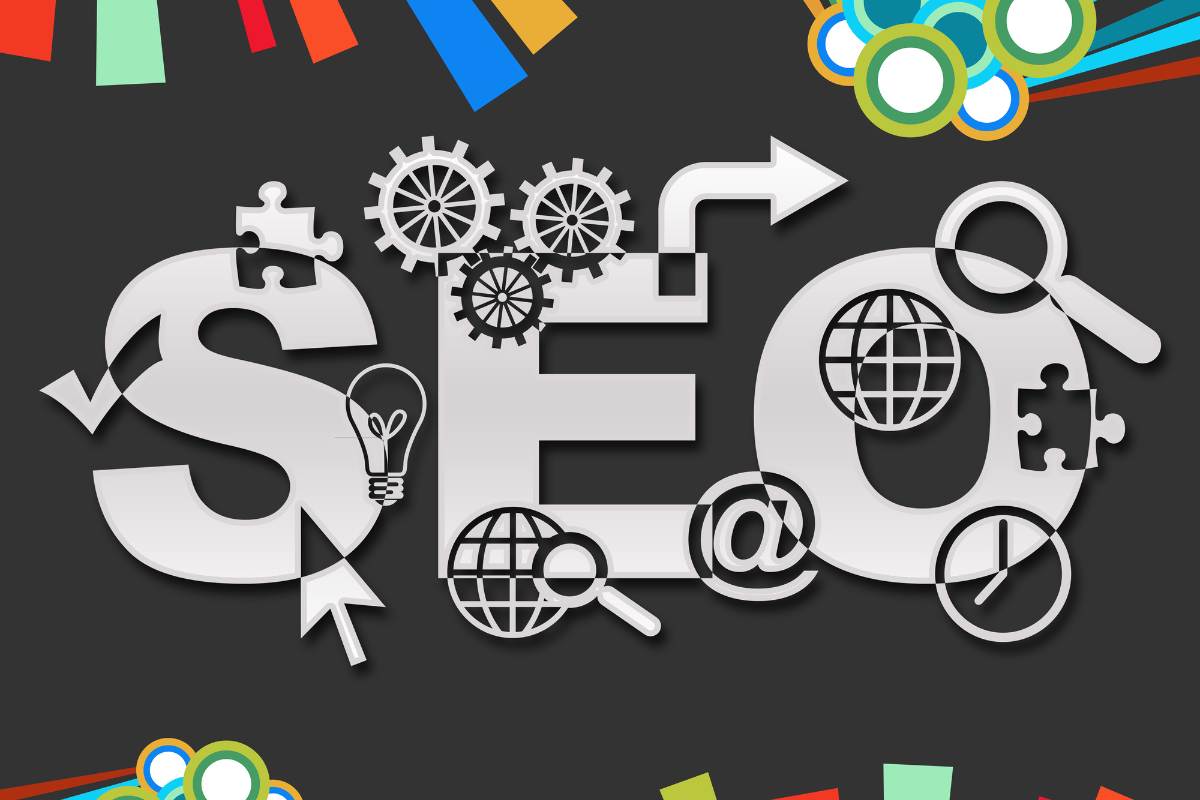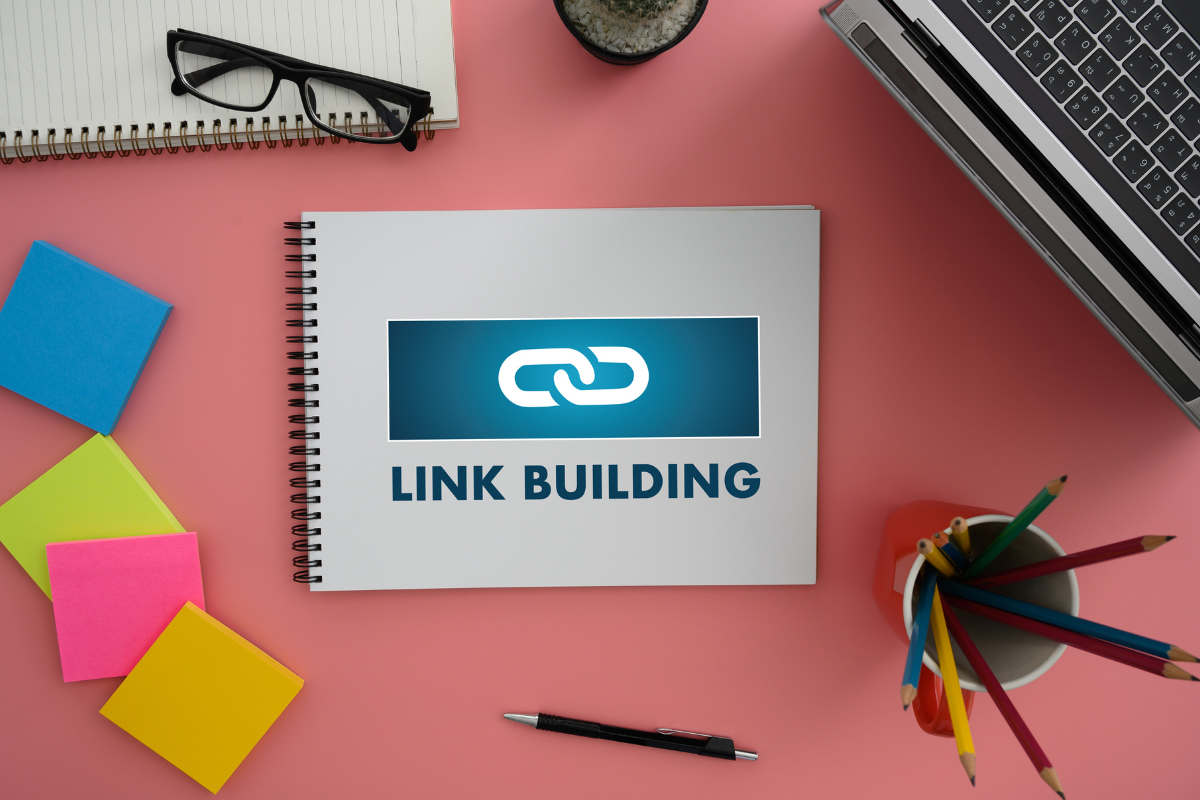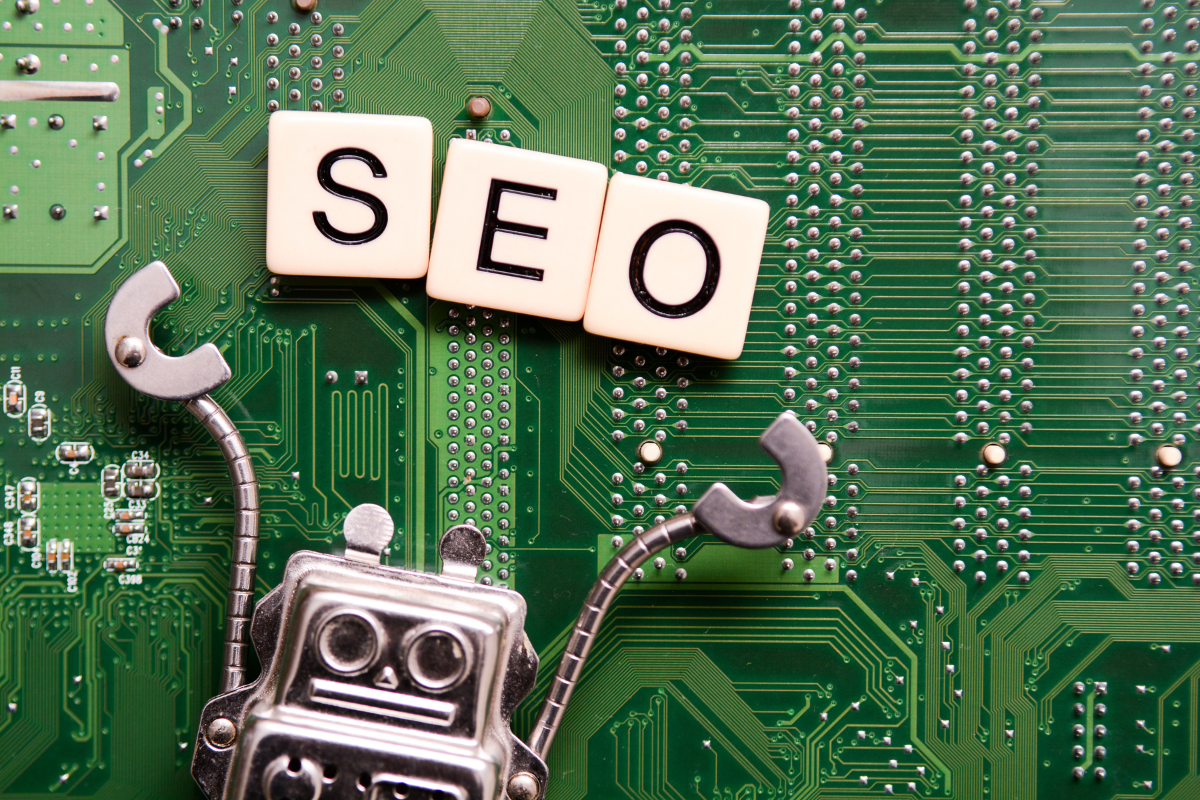
Post Title
The Importance of Pay Per Click Management in Today's Market
October 15, 2024
Ever wonder how businesses cut through the noise and grab attention online? Pay-per-click (PPC) advertising is a go-to strategy for driving high-quality traffic and boosting visibility. But just launching ads isn't enough. The key lies in effective pay per click management, making sure every dollar spent brings real returns. This guide will walk you through the ins and outs of PPC services, strategies, and best practices to help you get the most from your campaigns.
What is Pay Per Click Management?

PPC management involves overseeing and strategizing all aspects of your pay-per-click advertising campaigns. From keyword selection to bidding strategies, it's about making data-driven decisions to maximize return on ad spend. The scope of PPC management is vast, encompassing strategic planning, execution, and continuous optimization.
A well-managed PPC campaign ensures that every dollar spent contributes to your business goals. It's not just about driving traffic; it's about attracting the right traffic that converts. This involves understanding your audience's intent and aligning your campaigns to meet their needs. With effective management, PPC can become a reliable source of leads and sales for your business.
Why Strategic Planning Matters
In PPC management, strategic planning is crucial. Without a clear plan, your campaigns might lack focus, leading to wasted budget and missed opportunities. A strategic approach involves setting clear objectives, conducting thorough competitor analysis, and identifying the most relevant keywords. It's about understanding your audience and crafting campaigns that resonate with them.
Execution is just as important. This means setting up your campaigns correctly, choosing the right platforms, and creating compelling ad copy. It's about ensuring that your ads reach the right people at the right time. Optimization, on the other hand, is an ongoing process that involves refining keywords, adjusting bids, and testing different ad variations. The goal is to continually improve your campaigns for better performance.
4 Key Components of Pay Per Click Management
1. Keyword Research and Selection
Choosing the right keywords is the foundation of successful PPC campaigns. It's not just about targeting high-volume keywords; it's about finding those that align with user intent and drive conversions. Keyword research tools like Google Keyword Planner and SEMrush can help identify relevant keywords that your target audience uses.
When selecting keywords, consider both short-tail and long-tail options. While short-tail keywords have higher search volumes, they are often more competitive. Long-tail keywords, on the other hand, may have lower search volumes but are highly targeted, making them ideal for capturing specific user intent. Remember, the right keywords can significantly impact your campaign's performance.
2. Crafting Compelling Ad Copy
Your ad copy is your opportunity to capture attention and entice clicks. It's important to craft messages that resonate with your audience and highlight the benefits of your product or service. A strong call-to-action (CTA) is essential, guiding users to take the desired action.
A/B testing plays a crucial role in ad creation. By experimenting with different headlines, descriptions, and CTAs, you can identify which combinations yield the best results. Testing allows you to refine your messaging over time, ensuring your ads remain relevant and engaging.
3. Bid Management
Effective bid management is about finding the balance between competitiveness and cost control. Setting and adjusting bids is a dynamic process that requires constant monitoring and analysis. Automated bidding strategies can be beneficial, allowing you to optimize for specific goals, such as maximizing conversions or achieving a target cost-per-acquisition (CPA).
It's important to regularly review your bids and adjust them based on performance metrics. This ensures that you remain competitive while controlling costs. Remember, effective bid management can make a significant difference in your PPC campaign's success.
4. Performance Monitoring and Optimization
Continuous monitoring is essential to track the performance of your PPC campaigns. Key performance indicators (KPIs) such as click-through rate (CTR), conversion rate, and return on investment (ROI) provide valuable insights into your campaign's effectiveness. Regularly reviewing these metrics allows you to make data-driven adjustments for better results.
Optimization is an ongoing process. It involves refining keywords, adjusting bids, and aligning ad copy with user intent. By continuously testing and experimenting, you can identify opportunities for improvement and ensure your campaigns are always performing at their best.
The Importance of PPC Services in Digital Marketing

Cost-effectiveness and Performance-based Model
PPC advertising offers a cost-effective model where you only pay when someone clicks on your ad. This performance-based approach ensures that your budget is spent on actual engagement, making it easier to measure ROI. Unlike traditional advertising, PPC provides immediate results, allowing you to quickly assess the impact of your campaigns.
Role of Digital Consultancy in Enhancing PPC Strategy
Partnering with a digital consultancy can enhance your PPC strategy by providing expert insights and guidance. Consultants bring industry knowledge and experience, helping you develop effective campaigns that align with your business goals. They can also assist with advanced targeting techniques, bid management, and performance analysis, ensuring your campaigns deliver optimal results.
Benefits of PPC Advertising
Immediate Results
One of the most significant advantages of PPC advertising is its ability to deliver immediate results. Unlike organic search, which can take time to gain traction, PPC ads appear at the top of search engine results pages (SERPs) almost instantly. This visibility leads to increased traffic and immediate exposure for your business.
Targeted Traffic
PPC allows you to target specific demographics, locations, and interests, ensuring your ads reach the most relevant audience. This level of precision targeting increases the likelihood of attracting users who are genuinely interested in your offerings, resulting in higher conversion rates.
Measurable ROI
PPC campaigns provide robust tracking and reporting capabilities, allowing you to measure the effectiveness of your efforts. By analyzing metrics such as CTR, conversion rate, and ROI, you can determine the success of your campaigns and make data-driven decisions to optimize performance.
Flexible Budgeting
PPC offers flexibility in budgeting, allowing you to set daily or monthly limits that align with your financial goals. Whether you have a small budget or a significant investment, PPC campaigns can be tailored to suit your needs. This flexibility ensures that businesses of all sizes can benefit from PPC advertising.
Types of PPC Campaigns

Search Advertising
Search advertising involves placing ads on search engine results pages, targeting users actively searching for specific keywords. Google Ads is the most popular platform for search advertising, offering a range of targeting options and ad formats to reach potential customers.
With search advertising, you can appear at the top of search results, increasing visibility and driving relevant traffic to your website. It's important to manage your campaigns effectively, using keyword research and bid management strategies to maximize your results.
Display Advertising
Display advertising involves placing visual ads on websites within the Google Display Network. These ads can include images, videos, and interactive elements, making them engaging and eye-catching. Display advertising is an excellent way to increase brand awareness and reach a broad audience.
To succeed with display advertising, it's important to create compelling visuals and target the right audience. By using demographic and interest targeting, you can ensure your ads are shown to users who are most likely to engage with your brand.
Social Media Advertising
Social media platforms like Facebook, Instagram, and LinkedIn offer robust advertising options that allow you to reach specific audiences based on demographics, interests, and behaviors. Social media advertising is particularly effective for building brand awareness and engaging with potential customers.
By integrating social media advertising with paid search marketing, you can create a comprehensive strategy that covers multiple touchpoints. This approach increases your chances of reaching users at different stages of the buyer's journey.
Shopping Ads
Shopping ads are designed for e-commerce businesses, allowing them to showcase their products directly on search engine results pages. These ads include product images, prices, and descriptions, making it easy for users to find and purchase items.
Optimizing shopping ads is crucial to success. This involves ensuring product data is accurate and up-to-date, using relevant keywords, and setting competitive bids. By doing so, you can maximize visibility and drive sales for your online store.
Video Advertising
Video advertising allows you to tell your brand's story through engaging visual content. Platforms like YouTube offer extensive reach and targeting options, making video advertising an effective way to connect with your audience.
To succeed with video advertising, it's important to audit and create compelling and authentic content that resonates with viewers. By leveraging the power of storytelling, you can capture attention and drive meaningful engagement.
Remarketing Ads
Remarketing ads target users who have previously visited your website but did not convert. These ads remind users of your brand and encourage them to return to complete their purchase or take another desired action.
Remarketing is a powerful strategy for improving conversion rates. By tailoring your ad messaging and targeting specific audience segments, you can re-engage potential customers and increase the likelihood of conversion.
Pay Per Click Management Services

Overview of PPC Management Services
PPC management services encompass a range of activities, from initial campaign setup to ongoing optimization and reporting. These services aim to maximize the effectiveness of your PPC campaigns, ensuring they align with your business goals and deliver optimal results.
By leveraging the expertise of a PPC management agency, you can benefit from advanced tools, industry insights, and comprehensive reporting. This allows you to focus on other aspects of your business while professionals handle your PPC strategy.
Advantages of Working with a Pay Per Click Management Agency
Partnering with a PPC management agency offers several advantages. Agencies bring expertise and experience, allowing you to tap into proven strategies and best practices. They also have access to advanced tools and technology, ensuring your campaigns are set up and managed effectively.
An agency can provide comprehensive reporting, giving you insights into campaign performance and identifying areas for improvement. This level of transparency allows you to make informed decisions and optimize your PPC strategy for better results.
Role and Responsibilities of Pay Per Click Managers
Pay per click managers play a crucial role in overseeing and optimizing PPC campaigns. Their responsibilities include conducting keyword research, creating compelling ad copy, managing bids, and monitoring performance metrics.
PPC managers also analyze data and make data-driven adjustments to improve campaign effectiveness. By staying updated with industry trends and changes, they ensure your campaigns remain competitive and deliver consistent results.
Overview of Pay Per Click Campaign Management
Pay per click campaign management involves the strategic planning, execution, and optimization of PPC campaigns. This includes setting clear goals, conducting keyword research, creating ad copy, and managing bids.
Effective campaign management requires continuous monitoring and analysis to identify opportunities for improvement. By testing different strategies and leveraging automation tools, you can optimize your campaigns and achieve better results.
10 Best Practices for PPC Campaign Optimization

1. Choosing the Right Platforms
Selecting the right platforms for your PPC campaigns is crucial to reaching your target audience. Consider factors such as user demographics, platform reach, and advertising features when making your decision.
By choosing the right platforms, you can ensure your ads are shown to the most relevant audience, increasing the likelihood of engagement and conversions.
2. Setting Clear Goals and Objectives
Setting clear goals and objectives is essential for measuring the success of your PPC campaigns. Define specific, measurable goals such as increasing traffic, generating leads, or driving sales.
Establish key performance indicators (KPIs) to track progress and measure success against your goals. This allows you to evaluate the effectiveness of your campaigns and make data-driven adjustments.
3. Conducting Thorough Keyword Research
Thorough keyword research is the foundation of successful PPC campaigns. Use tools like Google Keyword Planner and SEMrush to identify high-volume and relevant keywords.
Focus on long-tail keywords to target specific search queries and reduce competition. By choosing the right keywords, you can maximize your campaign's performance and drive targeted traffic to your website.
4. Creating High-Quality Ads
Creating high-quality ads is essential for capturing attention and driving clicks. Write compelling ad copy that highlights the benefits of your product or service and includes a strong call-to-action (CTA).
Test different headlines and descriptions using A/B testing to determine which versions yield the best results. By optimizing your ad copy, you can improve your campaign's effectiveness and drive engagement.
5. Optimizing Landing Pages
Optimizing landing pages is crucial for converting ad clicks into actions. Ensure your landing pages are relevant to your ad copy and provide a seamless user experience.
Focus on clear and compelling messaging, easy navigation, and a strong CTA. By aligning your landing pages with user intent, you can improve conversion rates and maximize the ROI of your PPC campaigns.
6. Implementing Bid Adjustments
Implementing bid adjustments is an essential strategy for optimizing PPC campaigns. Adjust your bids based on factors such as device, location, and time of day to maximize performance.
By regularly reviewing and adjusting your bids, you can ensure your ads remain competitive and cost-effective. This allows you to control costs while driving meaningful results.
7. Using Ad Extensions
Ad extensions provide additional information and improve ad visibility. Use sitelink, callout, and structured snippet extensions to enhance your ads and provide more value to users.
Ensure your extensions are relevant and updated regularly to reflect current promotions or offerings. By utilizing ad extensions, you can improve your campaign's effectiveness and drive engagement.
8. Analyzing Performance Data
Analyzing performance data is crucial for optimizing PPC campaigns. Focus on key metrics such as CTR, conversion rate, quality score, and ROI to evaluate campaign performance.
Use Google Analytics and PPC reporting tools to gain insights into user behavior and campaign effectiveness. By analyzing performance data, you can make data-driven decisions and optimize your campaigns for better results.
9. Testing and Experimenting
Regular testing and experimentation are essential for identifying what works best in your PPC campaigns. Run A/B tests on landing pages, ad creatives, and bidding strategies to identify opportunities for improvement.
Analyze the results and make data-driven decisions to optimize your campaigns continually. By testing and experimenting, you can uncover hidden opportunities for growth and efficiency.
10. Leveraging Automation Tools
Leveraging automation tools can streamline your PPC management and improve campaign performance. Use tools like Google Ads scripts, bid management platforms, and automated reporting tools to save time and optimize your campaigns.
Automation allows you to focus on strategic planning and creativity while ensuring your campaigns remain competitive and cost-effective.
Let Visio SEO Drive Your PPC Success!

PPC isn’t just a click-fest; it’s a targeted investment in your business’s future. At Visio SEO, our PPC management focuses on precision, delivering measurable results through fine-tuned strategies and keyword targeting.
The advantage? PPC that’s continuously optimized drives serious business growth.
Want to see your PPC budget make a real impact? Schedule a free SEO consultation with Visio SEO, and let’s take your campaigns to the next level.
Contact Us
Contact Us
We will get back to you as soon as possible
Please try again later
Subscribe to Our Newsletter
Stay up to date with our latest offers and promotions by signing up now!
Contact Us
We will get back to you as soon as possible.
Please try again later.

We are the premier digital marketing solution in Elgin. Contact us today to get your free, no-obligation consultation!










